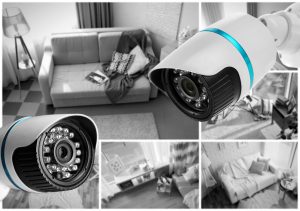 Low blood pressure sounds like something that isn’t really a problem, but if blood pressure falls too low, it can definitely be a problem. Learning as much as possible about low blood pressure may be a good idea, especially if your senior’s blood pressure readings have been off the mark a bit.
Low blood pressure sounds like something that isn’t really a problem, but if blood pressure falls too low, it can definitely be a problem. Learning as much as possible about low blood pressure may be a good idea, especially if your senior’s blood pressure readings have been off the mark a bit.
Low Blood Pressure Defined
Low blood pressure sounds like it refers to blood pressure that is simply lower than normal, but it’s more complicated than that. The accepted norm for blood pressure is a measurement of 120 for the systolic, or upper, measurement and 80 for the diastolic measurement. Measurements higher than this are considered high blood pressure and can be dangerous long-term. Low blood pressure is typically diagnosed when the systolic measurement is lower than 90 and the diastolic reading is less than 60.
Low Blood Pressure Symptoms
If your elderly family member is experiencing low blood pressure she’s likely to be lightheaded or dizzy, especially when she stands after sitting or lying down. There are other possible problems, though. She may have trouble staying on task or she may experience periods of nausea. She may also mention that she feels cold all the time, particularly in her extremities. These are usually mild symptoms. More serious symptoms could include fainting or shallow breathing.
Possible Causes of Low Blood Pressure
Your senior’s cardiovascular health is a very important part of her issues with low blood pressure, but there may be other health issues that contribute. Dehydration can contribute to low blood pressure, so it may be important to pay closer attention to how well and how often your senior is hydrating. There are other possible causes for low blood pressure that your senior’s doctor can narrow down.
Treatment for Low Blood Pressure
Treating low blood pressure depends a great deal on what’s causing the problem in the first place. Increasing fluid intake, salt intake, and generally paying closer attention to her diet might be among the first steps. If there’s an underlying health issue, then treating that can resolve the issues she’s experiencing with low blood pressure. That may mean medications and other therapies recommended by your senior’s doctor.
As your elderly family member starts to deal with low blood pressure and how it impacts her life, she may find that having help from a caregiver is a good idea. This can also give you a measure of peace of mind.
If you or an aging loved one is considering caregivers in Center Hill, FL, please contact the caring staff at Golden Heart Senior Care of Clermont today. 1-888-423-4046.
 Have you been wondering how to best care for your aging parent? Maybe you can’t be there to check in on them every single day. It might be a week or even more before you can check on your aging parent. This can cause issues and more worries on your part. Even if your aging parent has senior care providers, you might be worried about their care and needs. You can always install cameras in your aging parent’s house. Before doing this, there are some things that you might need to know.
Have you been wondering how to best care for your aging parent? Maybe you can’t be there to check in on them every single day. It might be a week or even more before you can check on your aging parent. This can cause issues and more worries on your part. Even if your aging parent has senior care providers, you might be worried about their care and needs. You can always install cameras in your aging parent’s house. Before doing this, there are some things that you might need to know.